When you think of the brand Nike, what comes to mind? If you’re like most people, it’s probably the famous swoosh logo and the tagline “just do it.” But the last thing that pops in your head is the name of Nike’s creator, Phil Knight.
In fact, most people probably couldn’t even identify Phil Knight:
That’s because he built a massive company and wasn’t worried about personal branding. Or maybe he just wasn’t very good at it. Whatever the case, a personal brand is something that everyone should create, now more than ever.
That’s why in today’s article, you’ll learn:
- What a personal brand is
- Why you should care about building your personal brand
- How to create your personal brand with a step-by-step guide
What Is a Personal Brand?
Simply put, a personal brand is when you start promoting yourself as a professional asset to others.
You highlight your expertise in a given field, maintain your public reputation, and show your followers that you are the best solution to a specific problem: not something you built, not special tools you own, but you, your mind, and your personality.
In other words, your personal brand is a digital snapshot of who you are and what you do.
One of the most famous (and most successful) examples of personal branding is Kim Kardashian. While she gets a ton of criticism as someone who became “famous for being famous,” she’s undeniably built up an empire around her name and image.
Say what you will about Ms. Kardashian, but in a world where most people fight to hit 1,000 followers on any platform, she has 62.3 million followers on Twitter and 151 million on Instagram.
Plus, unlike Phil Knight, nearly everyone on the planet could identify her in a lineup.
And while you may be thinking that personal branding is only important for Hollywood stars and fashion models, think again. Building a personal brand is crucial for your eCommerce success.
Why Personal Branding Matters
The internet was an awesome invention because it gave everyone a voice. But now, marketers and small businesses are facing an unexpected (and ironic) problem as a result:
So how do you stand out online when there is so much competition? The answer is simple:
Personal branding.
People need to take their personal brand more seriously for a few reasons. First, whether you like it or not, you already have a personal brand.
Everyone does.
Right now anyone can find out loads of information about you with a few Google searches and 10 minutes sifting through your social media accounts.
Your content, your pictures, your work experience… all these factors paint an image of you in the minds of online viewers.
But that image may not be accurate and may not be what you want to convey.
By taking your personal brand more seriously, you can browse through your online image, clean out some of those embarrassing photos you put up on Facebook 10 years ago, create content that emphasizes who are now and showcase what unique skills/knowledge you bring to the table.
Second, a personal brand will likely bring you more opportunities. Whether you are a freelance worker, actively searching for a full-time position, or simply open to any options that are lucrative, a personal brand can open doors for you.
Look at it this way: let’s say you were the hiring manager for a new company and needed a marketing expert.
Would you be more likely to hire someone with a regular CV and cover letter (of which you have already have a stack of hundreds):
Or a candidate with a personal website, a YouTube channel on marketing, a personal blog, and who has an established following on social media on their personal account:
Unless you owe your sister a favor, you’re probably going with the latter.
By building a personal brand, you’re showing people that you aren’t just mindlessly doing a job and hiding behind some corporate logo. You’re showing that you’re passionate about something and actively making yourself an expert.
A personal brand also shows that you’re confident enough to put yourself out there and demonstrate your knowledge to the world. Finally, your personal brand lets people connect with your personality in a way that they otherwise couldn’t.
All of these factors inspire trust from potential clients and make them more likely to want to work with you.
So, again, whether you want to build more clients for your own company, consult for an established corporate brand, or simply keep your options open, having a strong personal brand can be a good way to advance your career and gain some professional stability.
How to Build Your Personal Brand
Even though it’s more important than ever to strengthen your personal brand, it’s also easier than ever! Here’s how to get started:
Pick a Niche
If you’ve ever done any research on personal branding, then you know that this is common knowledge in the marketing world. And yet so many entrepreneurs and small business owners make the mistake of hiding behind broad categories of expertise rather than narrowing in on specific aspects of their career fields.
Take Rand Fishkin, creator of the popular SEO tool called Moz, for example. He built up his personal brand through Moz’s corporate brand with a video series called “Whiteboard Fridays”:
He became active on Twitter and grew his following to more than 430k people:
He began speaking at conferences about SEO:
And wrote a book on bootstrapped startups called “Lost and Founder”:
As a result, he is now viewed as an expert on startups and content marketing. Since he’s left Moz, he’s been able to use his high profile personal brand to advertise new ventures. His latest startup, SparkToro, for example, is a platform for his personal blog:
Thus, his new companies brand and his personal brand are able to work together to strengthen one another.
That said, Rand Fishkin has never claimed advanced knowledge in other areas of online marketing such as social media marketing or conducting market research. He knew what he is good at, leaned into it, and built a successful personal brand as a result.
Pro TipThis advice doesn’t mean you shouldn’t consistently grow and add new skills to your personal brand. When you’re just beginning, however, it’s important to focus on a few skills you’re really, really great at while building up your following.
When it comes to your own personal brand, take a look at what you do and narrow down your image to the top 2-3 skills you are the best at.
At this point, be as specific as possible and make sure all your content (which we will discuss soon) takes a deep dive into that sub-category of your professional field.
Define Your Voice, Image, and Message
A lot of entrepreneurs and small business owners make the mistake of trying to figure out what their audience wants to hear and tailoring their personal brand to that.
This is a recipe for disaster.
While it’s true that you need to connect with your target audience (which will be decided by your niche), you also need to be authentically yourself when it comes to your personal brand for a couple of reasons.
First, if you’ve built an image around yourself that isn’t authentic, most people can tell right away.
Second, you’re not going to enjoy maintaining your personal brand if it’s not representative of who you are! Remember, because a personal brand is so intimately tied to your own personality, it’s going to stick with you throughout your long (and hopefully successful) career.
Consequently, you want your online image to show what you do in a way that genuinely reflects who you are.
Now comes the fun part: building a website.
So far everything we’ve talked about has been theoretical. Here, though, you’ll start creating the concrete parts of your brand that make the process a whole lot of fun.
The first thing you’ll want to do is build yourself a website. Even though there are many platforms to choose from, we highly recommend going with WordPress because it is fast, reliable, and has the tools you need to build the custom site you’re looking for.
If you’re totally new to all this, you should check out WPBeginner’s step-by-step guide to creating a website. That post will have you up and running in minutes.
Here are a few best practices to get your website design right:
Choose the right colors. Different colors elicit different emotions. You can upload images that you feel reflect your voice and personal brand to Adobe’s Color Wheel and their program will create a color scheme for you. You can customize the options you get and have a color palette for your brand in minutes.
Make your message clear. Because people’s attention span is so short (around 8 seconds), you only have a small window to tell people exactly what you’re great at doing.
A good example of this is OptinMonster’s own homepage. Right away you know that OptinMonster is all about converting and monetizing your website traffic:
Let people see your face. Your personal brand should be, well, personal! Show people who you are with pictures to build familiarity, trust, and engagement with your audience. By letting them see who you are (rather than just reading about you), you’ll allow your followers to feel like they know you on a deeper level.
Melanie Duncan, for instance, uses her face on the homepage to build familiarity straight away:
Ok, so your website is built and you’re happy with how it looks. You’ve installed Google Search Console and you’re tracking your visitors but after several months, you’ve only got a few page views. Why?
Because websites are a dime a dozen.
If you want a successful personal brand, you need a business model for your site. That means three things:
- Get more traffic
- Grow your email list
- Monetize your brand
Here’s what to do to grow your personal brand:
Get More Traffic
A lot of people take the “if you build it, they will come” approach to their personal brand. The bad news is that it simply doesn’t work like that.
But the good news is that getting more traffic to your personal site isn’t complicated, especially since OptinMonster has loads of resources to help you each step of the way.
Increase Website Traffic With a Blog
Simply showing who are you on a custom website won’t be enough to build a successful personal brand. You’ll need to put out some content in the form of blogs, videos, infographics, eBooks, etc. It can be difficult to choose the right type of content for you, but blogs are one of the best ways to increase website traffic, so we recommend starting there.
Use Different Types of Content
That said, you have plenty of options. In fact, we’ve put together a list of 15 content formats proven to boost audience engagement.
Start with blog posts and long-form articles with high-quality images. Then, branch out to include videos, infographics, case studies, and other content formats that your users enjoy.
Leverage Social Media
We’ve curated a review of the best social media platforms for business, most of which are also great for building your personal brand and driving traffic to your website.
Focus on the platforms your target audience is already using. If your audience is Gen Z, for instance, you may want to get into TikTok. For Gen X, Facebook and Instagram may be the platforms for you.
Pro TipWhen it comes to your personal brand, choose just one or two social media platforms to begin with. Stretching yourself too thin will lead to inconsistent posting and waning engagement from your audience. When it comes to your personal brand and social media, it’s quality over quantity every time.
Grow Your Email List
Now that you’ve driven traffic to your site, you’ve still only won half the battle. While your reputation is likely growing, your personal brand isn’t solidified until you grow your email list and can stay in contact with your audience at your discretion.
The first thing you need to do is create a lead magnet. Lead magnets are special types of content that are given in exchange for an email address.
Next, you need to create your first optin to capture emails. We recommend 2-step optins as they tend to yield high results:
Of course, you have plenty of choices when it comes to optin types. For more information about each, check out our post on how to choose the perfect optin type for your website.
Monetize Your Brand
At this point you’ve probably begun to see what’s happening to your personal brand: it’s become a business in-and-of-itself. And just like you would with any other business, you can monetize your personal brand in many different ways. Here are four that we recommend:
- Make money on Instagram: On Instagram, you can promote sponsored products or sell your personal brand’s merchandise directly from your Instagram account.
- Make money on Twitter: With Twitter, you can run sponsored ads, promote affiliate products, promote your own products and more.
- Make money through affiliate marketing: With all the traffic you have coming to your site and reading your blogs, you can earn passive income by including affiliate links to products you love. When your followers buy an item from a link you suggested, you will earn a percentage of that sale.
- Sell your knowledge with an email marketing campaign: A lot of personal brands develop online courses to build a deeper relationship with their more committed clients. Once you have an online course or products that are associated with your personal brand, you can run an email campaign to drive conversions.
Here’s the coolest part about monetizing your personal brand (beyond increasing your revenue):
You begin to solidify your credibility as an expert in your field. That creates more interest in your site, more conversions, and gives you long-lasting professional stability.
It’s like a flywheel. Once you get started, momentum picks up in a big way!
There you have it. Everything you need to get started with personal branding. Not only will it help your professional reputation (which is always a good thing), it is one of the best ways to create new revenue streams and open opportunities that would have otherwise remained closed.
Now it’s time to take advantage of your personal brand and start converting your anonymous online traffic into loyal, paying customers. Get started by joining OptinMonster today!

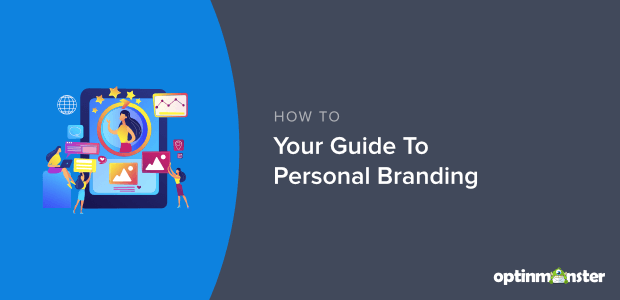
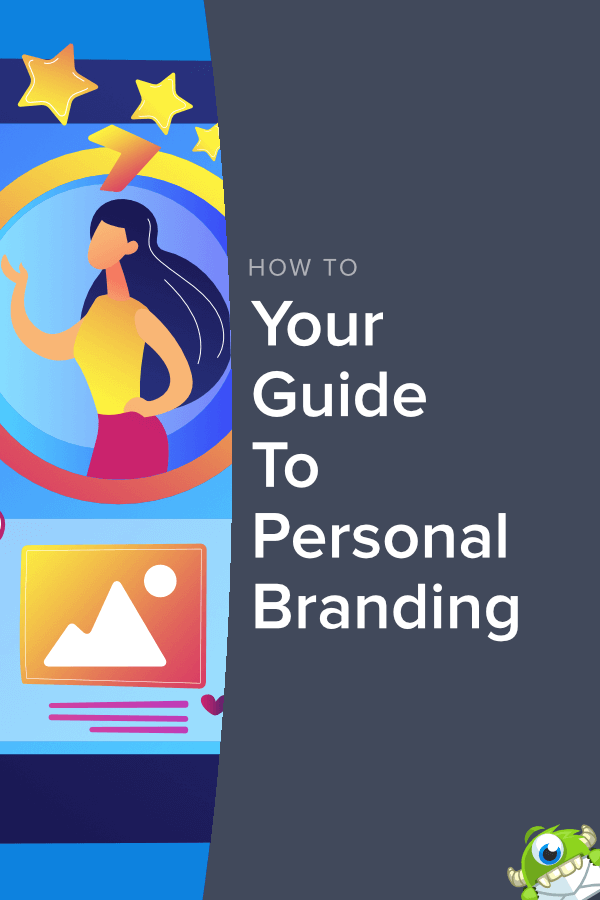

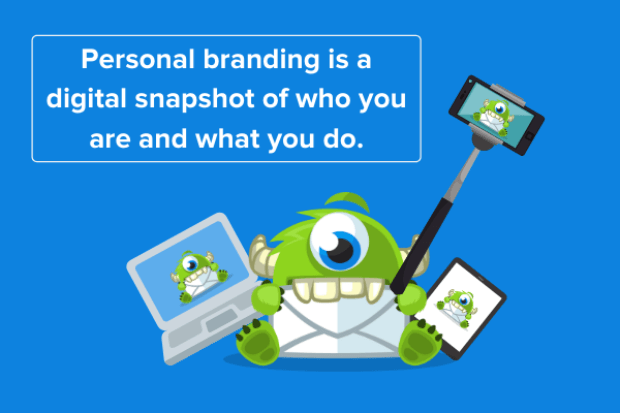
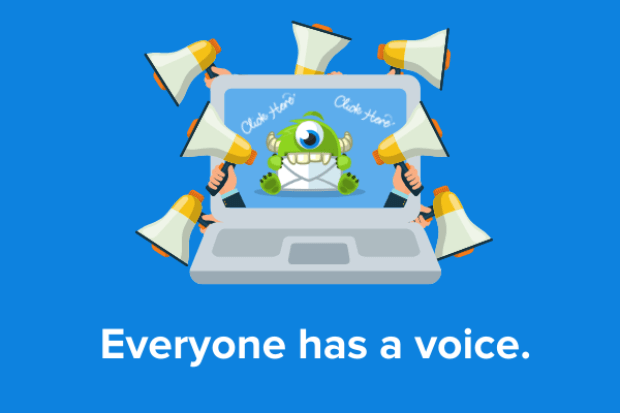


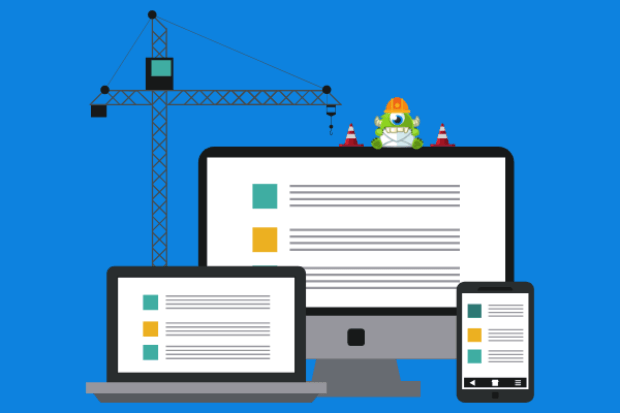

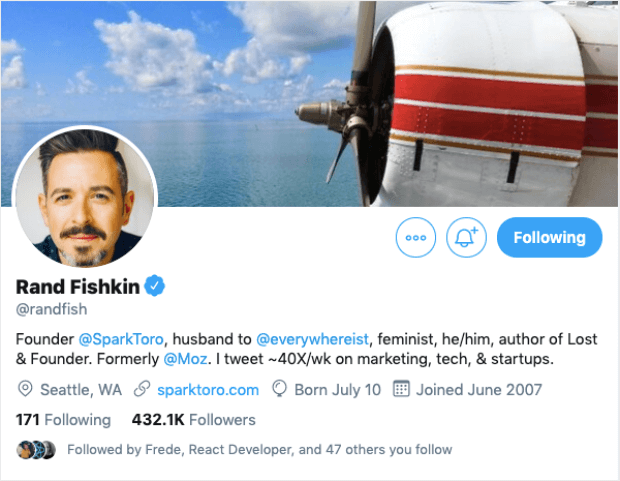
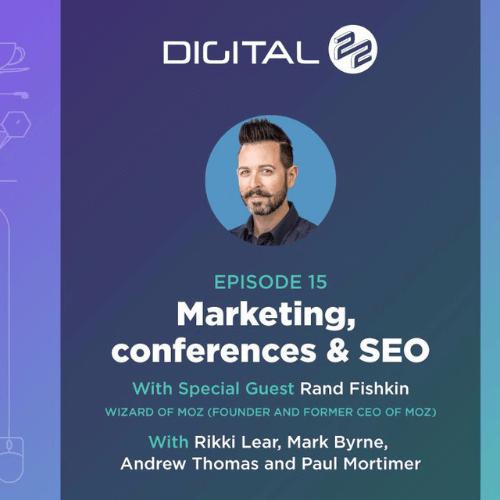
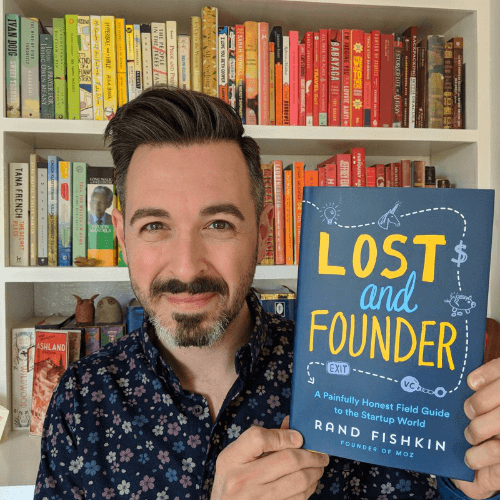
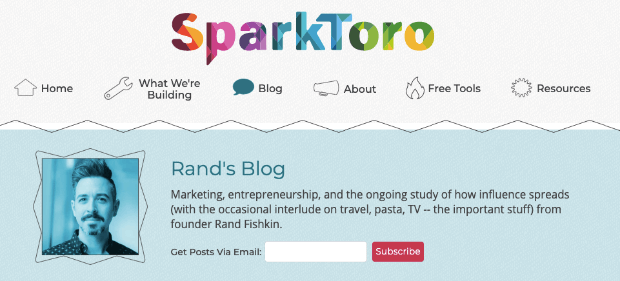
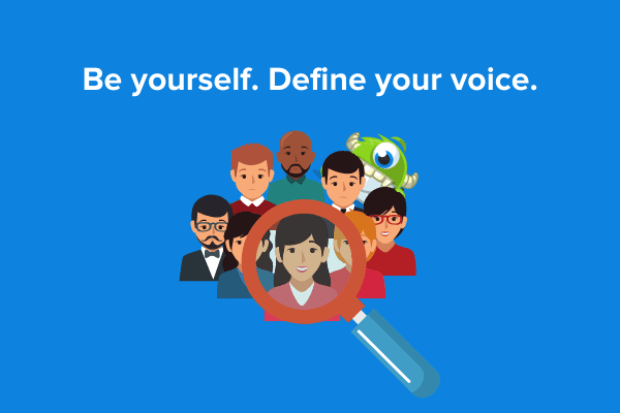
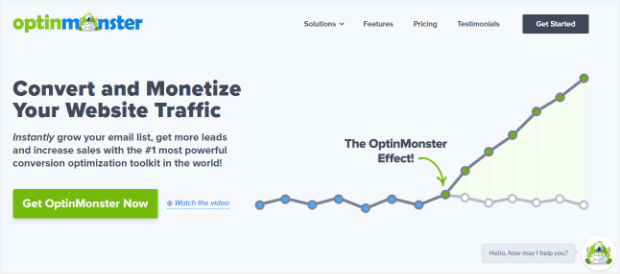
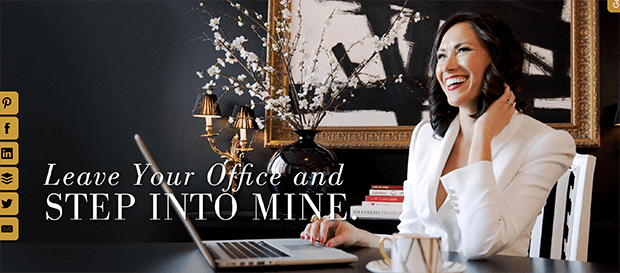
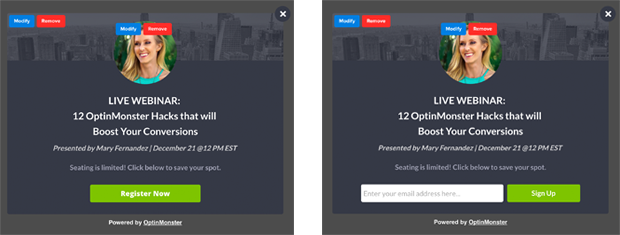

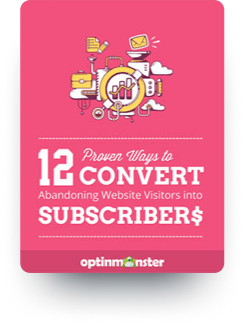


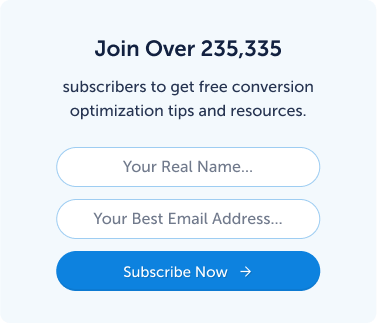



Add a Comment